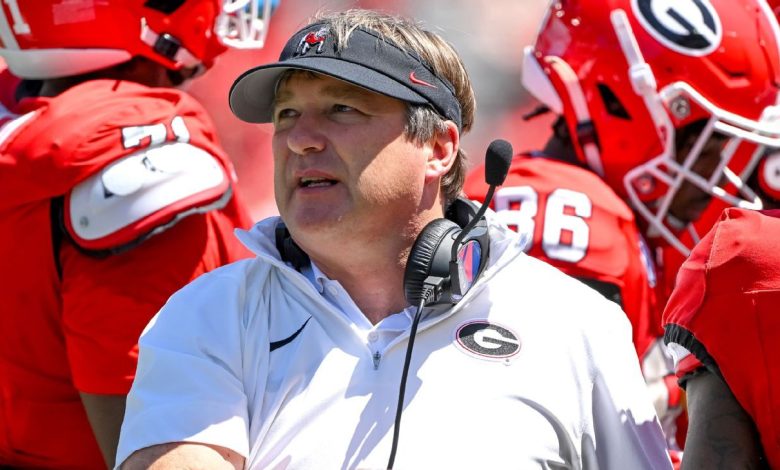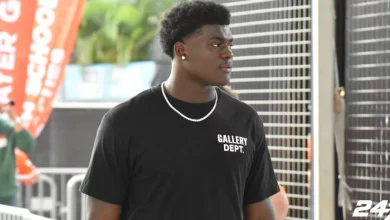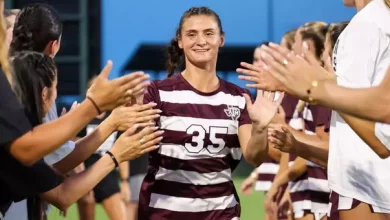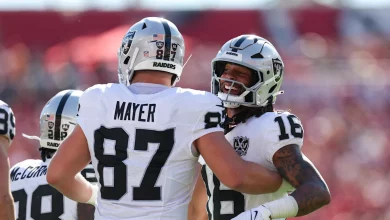Reckless: Examining Georgia football driving punishments and UGAAA regulations

In the high-stakes world of college football, discipline extends far beyond the gridiron. Universities enforce strict codes of conduct not only for academic achievement and athletic performance but also for personal conduct off the field. The University of Georgia (UGA), home to one of the most successful and storied college football programs, is no exception. In recent years, Georgia football has found itself embroiled in conversations about the behavior of its players off the field, particularly concerning incidents related to reckless driving. These events have raised questions not just about individual responsibility, but about the policies and regulations enforced by the University of Georgia Athletic Association (UGAAA).
Georgia’s football program, led by Kirby Smart, has seen immense success in terms of national rankings, recruitment, and NFL draft picks. However, the issue of off-field behavior, particularly reckless driving, has surfaced as a concern in the wider dialogue about the program’s culture and its approach to discipline. The university has had to grapple with how best to handle this growing issue—balancing between a supportive athletic environment and ensuring players are held accountable for their actions.
In this article, we will explore the various facets of Georgia football’s driving punishments, UGAAA regulations, and the broader implications of these issues on the program’s reputation and future.
1. The Growing Problem of Reckless Driving Among College Athletes
Reckless driving has become a pressing issue on many college campuses, especially for student-athletes who often have the financial means, resources, and mobility to engage in risky behavior. For college football players, many of whom are still young, reckless driving can often be seen as a sign of immaturity or a lack of understanding of the consequences that come with such behavior. Yet, the reality is that for student-athletes, reckless driving can also be tied to the unique pressures they face: the demands of their sport, their rigorous schedules, and their public personas.
At Georgia, reckless driving incidents have become increasingly common among its football players. These offenses range from minor traffic violations to more serious charges of speeding, street racing, and driving under the influence (DUI). While some incidents are merely unfortunate lapses in judgment, others have led to significant injuries and legal consequences for the players involved. For a program as high-profile as Georgia’s, such events can have far-reaching implications, not only for the players themselves but for the team as a whole.
Several high-profile incidents in recent years have brought reckless driving into sharp focus. For instance, in 2022, several players on the Georgia football team were involved in separate traffic violations, including allegations of driving over 100 mph in residential areas. These incidents have led to scrutiny from local law enforcement, fans, and media alike. They’ve also spurred renewed conversations about the policies surrounding driving behaviors, consequences for players, and how Georgia handles such incidents from a program standpoint.
2. University of Georgia Athletic Association (UGAAA) Regulations
The University of Georgia Athletic Association (UGAAA) governs much of the athletic culture at the university, including setting standards for student-athletes both on and off the field. The UGAAA’s Code of Conduct provides a framework for maintaining discipline and ensuring that student-athletes adhere to rules, regulations, and laws that apply to all students. The Code outlines expectations for behavior, including adherence to the university’s academic standards and maintaining a positive public image.
When it comes to incidents like reckless driving, the UGAAA is tasked with determining appropriate punishments for players who violate traffic laws or engage in behavior deemed harmful to the program’s reputation. These punishments can vary based on the severity of the offense, but they generally follow a set of guiding principles:
- Suspension from games or practices: A player may be temporarily suspended from the team, either for a single game or a series of practices.
- Probation: A player may be placed on probation, meaning that any further violations could lead to harsher penalties.
- Counseling or education: For less severe infractions, a player might be required to undergo counseling or attend educational sessions on safe driving and the dangers of reckless behavior.
- Community service: In some cases, players may be required to perform community service to atone for their actions.
- Dismissal from the team: In rare but severe cases, such as incidents that result in significant harm or legal trouble, a player may face permanent dismissal from the team.
In 2022, Georgia took significant action in response to several driving violations. While many of the offenses were relatively minor, the program made it clear that it would not tolerate reckless behavior. Kirby Smart, Georgia’s head coach, publicly addressed these issues, emphasizing the importance of accountability and the university’s commitment to maintaining high standards of conduct.
The UGAAA has also worked closely with local law enforcement to ensure that players involved in driving-related incidents face legal consequences, in addition to team-imposed sanctions. This dual system of accountability—ensuring that players face legal and athletic penalties—serves to reinforce the idea that reckless driving cannot and will not be tolerated in Georgia football.
3. High-Profile Incidents and Their Impact
Several incidents have cast a shadow over Georgia football’s image, leading to criticism of both individual players and the program’s handling of discipline. One of the most significant events in recent memory was the 2022 incident involving Jalen Carter, one of Georgia’s top defensive linemen. Carter, who was set to be a high draft pick in the 2023 NFL Draft, was involved in a high-speed crash that resulted in the tragic death of a teammate and a staff member. The incident left the community reeling and sparked a nationwide debate about the dangers of reckless driving, particularly among college athletes.
Following this tragedy, Georgia’s athletic department took a hard look at its existing policies and how the program could better address the reckless driving problem. The UGAAA worked to tighten regulations and ensure that players understood the gravity of their actions. Despite this, many questioned whether Georgia was doing enough to ensure player safety and curb reckless behavior.
As part of the aftermath of Carter’s crash, Georgia instituted a new series of driving safety initiatives, including mandatory driving safety courses for all student-athletes and greater emphasis on the dangers of street racing and speeding. However, critics pointed out that the program still seemed to struggle with balancing the competitive pressures of college football and the responsibility to instill personal discipline in its athletes.
While the Carter incident is one of the more extreme cases, it exemplifies the dangers of reckless driving and the need for stronger accountability measures. Other incidents, like speeding tickets or minor infractions, can sometimes be brushed off as “youthful indiscretions,” but as the program continues to grow in stature, the public and media expect a higher level of accountability from Georgia’s leadership.
4. Kirby Smart’s Response and Leadership
Kirby Smart, who has led Georgia to national prominence in recent years, is no stranger to criticism regarding player conduct. While he has generally enjoyed widespread support from fans and administrators for his coaching acumen and leadership, the recent string of reckless driving incidents has brought a different kind of spotlight to his leadership.
Smart has consistently expressed his commitment to holding players accountable for their actions, both on and off the field. In addressing reckless driving incidents, Smart has taken a firm stance, publicly emphasizing the importance of safety and good decision-making for all of his players. His response to these incidents has included a mix of internal discipline, such as suspensions and fines, alongside public education on the dangers of irresponsible driving.
“I have a responsibility to these young men, not just as athletes, but as individuals,” Smart said in a press conference following one of the reckless driving incidents in 2022. “Our program will hold them to the highest standards, and when they fall short, we’ll make sure they understand the consequences.”
Despite Smart’s firm position on player conduct, the frequency of reckless driving incidents among Georgia football players has led some to question whether the program’s disciplinary procedures are adequate or if the pressures of elite college football culture are contributing to the problem. For many, Smart’s leadership is seen as part of the solution, but the ongoing incidents suggest that there is still work to be done to ensure the safety and wellbeing of Georgia’s athletes.
5. The Future of Georgia’s Discipline Policies: Striking a Balance
The question of how to balance the expectations of an elite football program with the personal responsibility of its athletes is one that many schools face. For Georgia, this balance is becoming increasingly important, as the university’s reputation and success are intrinsically tied to the performance of the football program.
Moving forward, it is clear that UGAAA regulations will continue to evolve as Georgia navigates the challenges of maintaining discipline while fostering an environment conducive to athletic excellence. The program will likely increase its focus on education and prevention, including enhanced driver safety protocols, team-wide workshops on personal responsibility, and a more transparent approach to public discipline.
Moreover, the involvement of Georgia’s leadership—both within the football program and at the university level—will play a crucial role in determining how effectively the school can manage the reckless driving issue. Accountability, education, and a firm stance on discipline will likely remain at the forefront of the program’s approach to such incidents.
A Reckless Problem Demands Serious Solutions
Georgia football’s reckoning with reckless driving is far from over. As one of the premier programs in college football, the actions of its players and the decisions made by its leadership will continue to shape how other programs handle similar issues. The UGAAA’s regulations will play a crucial role in setting the tone for how Georgia navigates the increasingly
complex issue of discipline in an era of high expectations for both athletic performance and personal conduct.
Ultimately, the Georgia football program must continue to enforce its disciplinary policies with clarity and consistency, while also fostering an environment where athletes understand the importance of making responsible decisions. Only through a comprehensive and holistic approach—emphasizing education, accountability, and leadership—will the program be able to address this reckless issue head-on and continue to build on its success both on and off the field.









